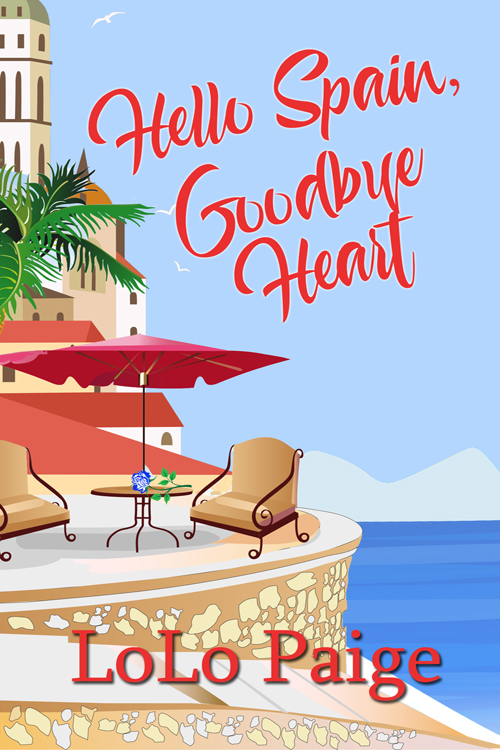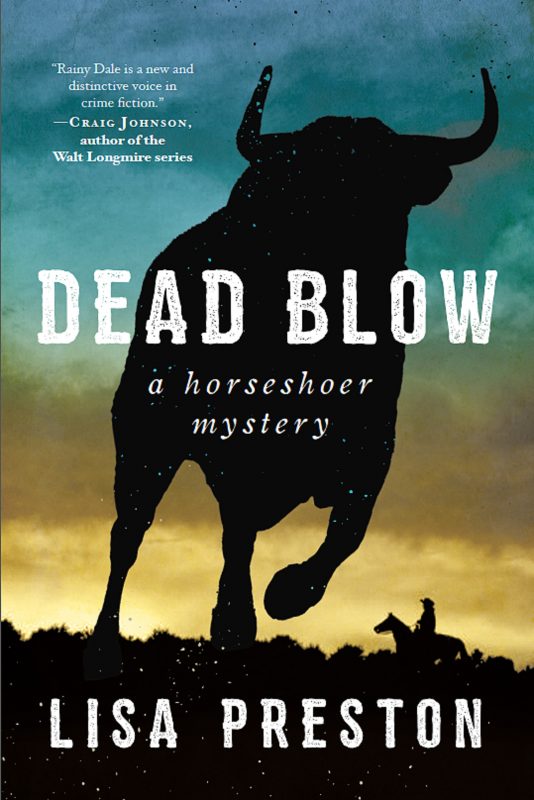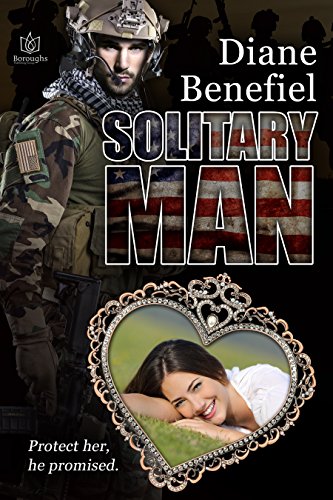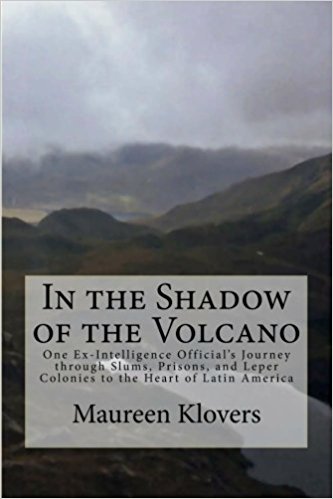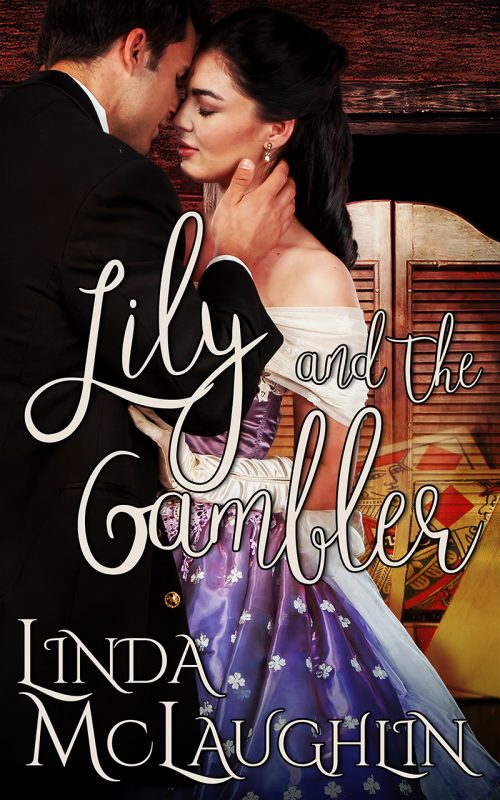The Book Jacket
June 15, 2019 by Rebecca Forster in category The Write Life by Rebecca Forster tagged as inspiration, Rebecca Forster, thrillers, writing
 This morning I read an article entitled Mister Waters’s Cardigan. It seems that Mr. John Waters, the campy, iconic American film director, screenwriter, author, actor, stand up comedian and all-around-impressive guy wears a ‘writing’ cardigan with mother-of-pearl buttons to spark his imagination. It is an Our Legacy cardigan. Our Legacy is a line of clothing designed for “down-to-earth, embarrassed-to-be-affluent fashionistas who never want to look silly” (this according to Mr. Waters). I looked up Our Legacy. The man’s cardigan I saw would set you back $458. It was very nice and very understated. Indeed, this cardigan would fool anyone into thinking the darn thing was made for a regular Joe.
This morning I read an article entitled Mister Waters’s Cardigan. It seems that Mr. John Waters, the campy, iconic American film director, screenwriter, author, actor, stand up comedian and all-around-impressive guy wears a ‘writing’ cardigan with mother-of-pearl buttons to spark his imagination. It is an Our Legacy cardigan. Our Legacy is a line of clothing designed for “down-to-earth, embarrassed-to-be-affluent fashionistas who never want to look silly” (this according to Mr. Waters). I looked up Our Legacy. The man’s cardigan I saw would set you back $458. It was very nice and very understated. Indeed, this cardigan would fool anyone into thinking the darn thing was made for a regular Joe.
I read the half-page article about Mr. Waters’s cardigan and lusted over the column inches dedicated to his sweater and his work. But the sweater? I’ll pass. You see, I have writing wear too and I think mine beats his hands down. Instead of a sweater, I wear a fleece jacket. It is made of recycled tires. My husband keeps trying to wash the darn thing because the cuffs are turning black and he thinks it’s dirty. I explain this is just the fleece wearing out and the black rubber of the recycled tires peeking through, but he will have none of it. I am constantly rescuing my writing jacket from the laundry.
Instead of an understated heather grey, my jacket is screaming-mimi yellow. I make no excuses for this. I know I am not at my most attractive in this jacket. I actually look like a cross between Tweety Bird and an egg yolk. On a good day I can pass for Sponge Bob Squarepants.
My jacket has no fashionista sensibilities with its big collar, giant cuffs and boxy cut. My jacket has three plastic buttons. My writing jacket set me back $10. Yes, that is ten buck-a-roos which is $448 less than Mr. Waters’s cardigan.
As different as Mr. Waters and I are – he writes camp, I write thrillers, he is affluent, I am what I am – we are the same in that we draw inspiration from something we don before we write. Our writing clothes keep us warm, help us think, signals to the world that we are working and are not to be disturbed. Our jacket/sweaters give us confidence and stick with us as we create worlds far away from the world we’re in. So the bottom line is this: find your writing sweater/jacket. No matter what it looks like, no matter how much you spend on it, if it’s the right one the benefits you will gain as an author are priceless.
2 0 Read moreTHE TRUTH ABOUT MUSES
May 15, 2019 by Rebecca Forster in category The Write Life by Rebecca Forster tagged as inspiration, writing, writing craft, writing life, writing process, writing tips
The other day I was musing about muses. This was a rather convoluted process that went something like this:
I want to write but I don’t have an idea. I should write, but I’m bummed because I don’t have an idea. I could write if I had a great idea. I need to get one and until I do, I’ll watch TV. There’s a movie on TV called The Muse. I’ll watch The Muse and get inspired.
This is how the musing went after the movie.
The Muse is awful. She’s demanding, self-centered, and doesn’t care about the writer’s work. Still, the he sees something in her. What does he see in her? I want a muse. I just don’t want a muse like that.
I turned off the TV, obsessed with the idea of getting a muse. I just had to figure out where to get one. Since I’d never actually seen a muse, I decided I better find out exactly what I was looking for.
In the dictionary, the first definition of muse is to be thrown into a deep state of dreamy abstraction. The second is a noun, naming any of the nine sister goddesses in Greek mythology that preside over song, poetry, the arts and sciences. The third definition is the one we think of most often, a human source of inspiration or a guiding genius.
With this information in hand, I analyzed my career and realized that a muse has guided me every step of the way. I have often found myself lost in a dream state inspired by another writer. Their work has more often than not sparked an idea for a book of my own or a shown me a new way of laying a story foundation or become a point of reference for an essential building block.
The second definition – the naming of the goddesses – is a matter of inspirational faith. I have always believed that there is ‘something’ hovering over artists that not only encourages the creative soul, but also gives it the courage needed to present its work to a critical public.
That brings us back to the movie and the third definition of muse: the source of inspiration that we can touch and talk to. For some people this is one person, for me it has been many. I don’t call them muses; I call them friends, lovers, family and colleagues. Each step of my career was inspired and moved forward by the muse of the moment, the one person I needed just then.
There was the high school teacher who told me I wrote well, my husband who rescued by early attempts from the trashcan, my children who proudly said their mom was a writer. As the years went on and the books piled up, there were editors who trained me and readers who cheered me on, inspiring me to be better at my craft. All these people were – as definition three would have us believe – guiding geniuses.
It doesn’t matter if they knew the roll they played in my writing. What matters is that I wrote because of them and never in spite of them. The truth is, all you have to do to find a muse is open your eyes, your mind, and your heart. That muse is there – sometimes where you least expect it.
0 0 Read moreEYE OF THE BEHOLDER by Rebecca Forster
March 15, 2019 by Rebecca Forster in category The Write Life by Rebecca Forster tagged as Alexander McCall Smith, Edinburgh, inspiration, JK Rowling, Outlander, Rebecca Forster.
I was in the U.K. during the last two weeks and every second was a celebration of writing. My son graduated with his masters in writing from Oxford (I am in awe), I met an author I had been corresponding with who managed to meet me in London on his way to the Netherlands. I had cocktails with a fan in London and another fan/friend/author in Edinburgh. When all that was done, another new friend drove me around the city.
I saw J.K.Rowling’s house (actually, I saw her security hedge) and Alexander McCall Smith’s haunts. I went to the writers’ museum. There were statues of writers, dishtowels, t-shirts and cement blocks in the squares featuring literary quotes. I raised a glass at The World’s End Pub made famous by Outlander. Even though I have made a living writing for over thirty years, I felt as giddy as a newbie in this amazing city. But when my host drove me to a middle school and parked across the street, I was speechless.

I will pause here to make a confession. I have never read a Harry Potter book. I have never seen a Harry Potter movie. I have never been to Universal Studios and gone on the Harry Potter tour. But the moment I put eyes on the imposing school building – ancient stones black with soot, turrets sliced into pieces by narrow windows, an entrance door so large it would take ten people to open it or at least a magic spell – I knew this was the building that inspired Harry Potter.
Thousands of people drive by that school each day, hundreds of uniformed students walk the halls and parents attended teacher meetings. For them that place was a school; for Rowling it was a universe.
On the other end of town I found Alexander McCall Smith’s stomping grounds. There is no 44 Scotland Street. However, I did see 43 Scotland Street and that was all I needed to understand his work.
Edinburgh is behind me, but I will never forget the moment I recognized the home of Harry Potter or the neighborhood of 44 Scotland Street. The reader in me lives for these moments when an author’s inspiration meets my reality. The author in me dreams that one day a reader will stand in the middle of Hermosa Beach and recognize it as the place Josie Bates was born.
2 0 Read more
A Tucker Story by Rebecca Forster
February 15, 2019 by Rebecca Forster in category The Write Life by Rebecca Forster tagged as Dogs!, inspiration, Pets, Rebecca Forster. writing
When the phone rang at 4:44 my husband answered. I sat up in bed and waited. Whatever news was to come, it wouldn’t be good. Tucker, my son’s dog, had died.
Ten years ago at Christmas time, against my advice, he got his then girlfriend a dog. The lady in question was not a homebody like my son, and I didn’t think she would like the responsibility of a dog. Still, poor as he was, my son wanted to get her this gift. Somehow he hooked up with a man in an alley who handed him a dog. He in turn proudly handed the pup to his girlfriend.
A few weeks later, the girl was gone and the dog was back. I advised my son to give him away. He couldn’t afford another mouth to feed. What if the dog got sick? What would the little thing do all day in a studio apartment while my son looked for work? Thankfully, my wise counsel fell on deaf ears, and Tucker became part of our family.
That dog grew from a terrified little mutt to a self-confident, joyful, loving pet. It took a year of patience and love for my son to convince Tucker that no one would beat him, no one would abandon him, and everyone would love him.
Tucker was polite. He waited patiently for everything – a walk, a treat, a cuddle – and showed gratitude for small kindnesses in a million little ways. Never a crotch-sniffer he spent weeks attacking mine, befuddling us all with this new behavior. I was diagnosed with uterine cancer a few weeks later and once I was operated on, he never did it again. I think that was a Tucker miracle.
He slept at my feet while I wrote, was underfoot when I cooked, followed me everywhere until my son came into the room. Then it was clear that Tucker’s heart belonged to him. The love between this rescue dog and this young man was glorious, and gentle, and kind, and loving, and caring. They were friends. They had each other’s backs.
If you think about it, all of us who write are striving to tell a Tucker story. In his little life there was drama and character building, joy and pain, courage and excitement, goals to be met, laughter to be shared and tears to be shed. If we as authors could weave a story one tenth as full as this dog’s life, our books would never be forgotten. So tomorrow when I sit down to work, I will remind myself to write a Tucker story even though I might shed a few tears along the way.
GUTS
January 15, 2019 by Rebecca Forster in category The Write Life by Rebecca Forster tagged as choices, writing
A few days ago my mom had a lunch, an affair to show off her Christmas decorations before she started taking them down. There were seven of us munching on layered Jell-O salad, finger sandwiches, and clam chowder. Over coffee, one of the ladies said:
“Tell us again how you started writing.”
I won’t bore you with the story, but my start involved a dare, a lot of hours of butt in the chair, no expectation of ever getting published and absolute terror and self-doubt once my first book went to contract.
When I was finished with my tale, she said: “Wow, that took guts.”
I wanted to tell her that, no, writing my first book didn’t take guts, staying in the industry did. If you’re reading this, and you are writing, you qualify as gutsy.
Every day you make decisions that will change the course of your career: you dig into your own pocket for advertising and public relations, are faced with tough demands from publishers and hard creative choices. Currently, there is a decision many of you will face and that is whether or not to sign a traditional publishing contract that contains a morality clause. Such clauses are included by houses like Simon & Schuster and Penguin Putnam and, if enforced, will void a contract (often asking for advances back and always removing books by the offending authors) because of past, present or future behavior that they consider immoral. ‘They’ – the judge and jury – are the publishers or public outcry on social media or anything that, in the publisher’s opinion, makes your work less saleable.
Morality clauses were nothing new, but in years gone by there were strict codes of morality based on widely accepted public mores and religious guidelines. In this day and age a moral transgression can be determined by a fashionable whim, a person who frivolously points a finger, or a trending Tweet. Today Oscar Wilde would not be considered immoral, yet in his time he was arrested and jailed for homosexuality. Still, his work was published and it was the public that decided whether or not to read it.
There are many questions about clauses like this, not the least of which is this: does such a clause infringe on free speech? Even more concerning is tying morality to salability, a bottom line, money. This space is too small for such a big debate, but here’s my bottom line: a publishing contract is a rare thing and, when offered, it will take guts to reject it because of a morality clause. It will also take guts to accept it and live with the knowledge that you, personally, and not just your work, could be deemed immoral at any time for any reason.
There’s a lot to think about in 2019 and one of those things is to ask yourself if you have the guts to be a writer.
2 0 Read more
Affiliate Links
A Slice of Orange is an affiliate with some of the booksellers listed on this website, including Barnes & Nobel, Books A Million, iBooks, Kobo, and Smashwords. This means A Slice of Orange may earn a small advertising fee from sales made through the links used on this website. There are reminders of these affiliate links on the pages for individual books.
Search A Slice of Orange
Find a Column
Archives
Featured Books
HELLO SPAIN, GOODBYE HEART
Dayna hopes for a second chance at love . . . but . . .he wears a wedding band.
More info →DEAD BLOW
Rainy will have to dig deep and use all the tools in her box to both defend herself and the people she's just learning to love.
More info →SOLITARY MAN
On a battlefield in Afghanistan, Sgt. Ryder Bronson makes an oath to protect his dying friend’s wife from a rogue cop—and from the passion that will threaten to overwhelm them both.
More info →IN THE SHADOW OF THE VOLCANO
One Ex-Intelligence Official's Journey through Slums, Prisons, and Leper Colonies to the Heart of Latin America
More info →Newsletter
Contributing Authors
Search A Slice of Orange
Find a Column
Archives
Authors in the Bookstore
- A. E. Decker
- A. J. Scudiere
- A.J. Sidransky
- Abby Collette
- Alanna Lucus
- Albert Marrin
- Alice Duncan
- Alina K. Field
- Alison Green Myers
- Andi Lawrencovna
- Andrew C Raiford
- Angela Pryce
- Aviva Vaughn
- Barbara Ankrum
- Bethlehem Writers Group, LLC
- Carol L. Wright
- Celeste Barclay
- Christina Alexandra
- Christopher D. Ochs
- Claire Davon
- Claire Naden
- Courtnee Turner Hoyle
- Courtney Annicchiarico
- D. Lieber
- Daniel V. Meier Jr.
- Debra Dixon
- Debra H. Goldstein
- Debra Holland
- Dee Ann Palmer
- Denise M. Colby
- Diane Benefiel
- Diane Sismour
- Dianna Sinovic
- DT Krippene
- E.B. Dawson
- Emilie Dallaire
- Emily Brightwell
- Emily PW Murphy
- Fae Rowen
- Faith L. Justice
- Frances Amati
- Geralyn Corcillo
- Glynnis Campbell
- Greg Jolley
- H. O. Charles
- Jaclyn Roché
- Jacqueline Diamond
- Janet Lynn and Will Zeilinger
- Jaya Mehta
- Jeff Baird
- Jenna Barwin
- Jenne Kern
- Jennifer D. Bokal
- Jennifer Lyon
- Jerome W. McFadden
- Jill Piscitello
- Jina Bacarr
- Jo A. Hiestand
- Jodi Bogert
- Jolina Petersheim
- Jonathan Maberry
- Joy Allyson
- Judy Duarte
- Justin Murphy
- Justine Davis
- Kat Martin
- Kidd Wadsworth
- Kitty Bucholtz
- Kristy Tate
- Larry Deibert
- Larry Hamilton
- Laura Drake
- Laurie Stevens
- Leslie Knowles
- Li-Ying Lundquist
- Linda Carroll-Bradd
- Linda Lappin
- Linda McLaughlin
- Linda O. Johnston
- Lisa Preston
- Lolo Paige
- Loran Holt
- Lynette M. Burrows
- Lyssa Kay Adams
- Madeline Ash
- Margarita Engle
- Marguerite Quantaine
- Marianne H. Donley
- Mary Castillo
- Maureen Klovers
- Megan Haskell
- Melanie Waterbury
- Melisa Rivero
- Melissa Chambers
- Melodie Winawer
- Meriam Wilhelm
- Mikel J. Wilson
- Mindy Neff
- Monica McCabe
- Nancy Brashear
- Neetu Malik
- Nikki Prince
- Once Upon Anthologies
- Paula Gail Benson
- Penny Reid
- Peter Barbour
- Priscilla Oliveras
- R. H. Kohno
- Rachel Hailey
- Ralph Hieb
- Ramcy Diek
- Ransom Stephens
- Rebecca Forster
- Renae Wrich
- Roxy Matthews
- Ryder Hunte Clancy
- Sally Paradysz
- Sheila Colón-Bagley
- Simone de Muñoz
- Sophie Barnes
- Susan Kaye Quinn
- Susan Lynn Meyer
- Susan Squires
- T. D. Fox
- Tara C. Allred
- Tara Lain
- Tari Lynn Jewett
- Terri Osburn
- Tracy Reed
- Vera Jane Cook
- Vicki Crum
- Writing Something Romantic
Affiliate Links
A Slice of Orange is an affiliate with some of the booksellers listed on this website, including Barnes & Nobel, Books A Million, iBooks, Kobo, and Smashwords. This means A Slice of Orange may earn a small advertising fee from sales made through the links used on this website. There are reminders of these affiliate links on the pages for individual books.

